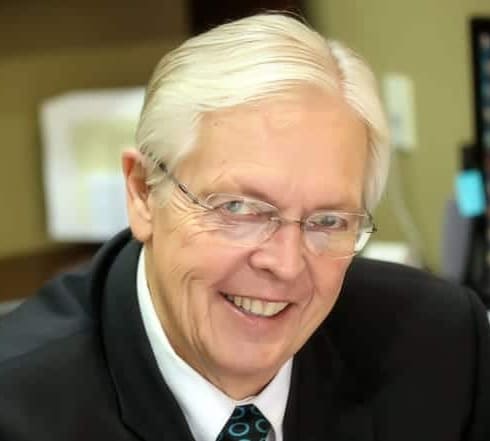The Importance of Expert Witnesses to Your Truck Accident Case
 When you’re injured in an accident with a large truck, the aftermath can be much worse than a wreck with another passenger vehicle. Everything is likely ramped up – the damage to your car, the severity of the accident, and the more life-threatening your injuries. Bringing your legal claim can be much more complicated as well, as truck accident cases involve state and federal regulations, an understanding of commercial truck mechanics, and determining the physical and financial effects of your injuries.
When you’re injured in an accident with a large truck, the aftermath can be much worse than a wreck with another passenger vehicle. Everything is likely ramped up – the damage to your car, the severity of the accident, and the more life-threatening your injuries. Bringing your legal claim can be much more complicated as well, as truck accident cases involve state and federal regulations, an understanding of commercial truck mechanics, and determining the physical and financial effects of your injuries.
Putting together a successful personal injury claim requires not only an experienced attorney, but also expert witnesses – reliable and trained experts in their fields who can testify and answer questions about the finer details of your case. Our attorneys have access to a network of expert witnesses who can help strengthen and bolster your case after you’re injured in a truck accident.
What is an expert witness?
During a court case, not just anyone can come to trial and offer their statements. To be called as a witness during a legal proceeding, a witness or expert witness must qualify to do so. A witness is a person who testifies about events they observed firsthand – this could be someone who was there when your accident occurred; maybe another driver or nearby pedestrian. However, a witness can’t offer their opinion; they can only make a statement about what they saw happen. In other words, just the facts.
On the other hand, an expert witness is a little different. An expert has special skills, knowledge, training that allows them to evaluate information about a truck accident and offer their expert opinion to a judge or jury. Even though an expert witness didn’t personally see the accident, they possess the right expertise and education to review all available information and provide an informed opinion to the court.
How can an expert witness help with my truck accident case?
Determining the at-fault party in a truck accident claim is typically much more difficult than in a traditional car accident claim. Crashes and collisions with commercial trucks typically involve a variety of trucking industry standards and regulations, which can be complicated and difficult to understand for the average person. Large trucks also utilize different mechanics, technologies, and have different safety concerns than passenger vehicles.
An expert witness can help explain these concepts in a way that jurors can understand. The answers an expert witness provides gives jurors the information they need to understand why and how a truck accident happened, who or what was at fault, the extent of your injuries, and the amount of financial compensation to which you are entitled. Without this information, a jury may not have the true scope of information they need to rule in your best interests.
Are there different kinds of expert witnesses?
Yes, and our attorneys may call on one or more types, depending on the circumstances of your case. We often call upon the following kinds of expert witnesses when handling serious truck accidents:
- Accident reconstruction, who can reconstruct a crash to help determine fault.
- Medical, to demonstrate the full scope of your injuries and the treatment you’ll need now and potentially for the rest of your life.
- Psychological, to demonstrate the mental and emotional toll of your accident.
- Financial, who can factor in all the expenses related to your accident (medical expenses, lost wages, etc.).
- Vocational/rehabilitation, to determine loss of earning capacity due to your injuries.
- Roadway design, to determine if roadway defects or lack of traffic signage contributed to your accident.
- Mechanical, to provide analysis of whether a truck’s mechanical failure or defect led to the accident.
- Forensic toxicologist, who can show a link between alcohol and drug impairment and your accident.
- Trucking safety investigator, to discover if the trucker or trucking company has previous safety violations.
- Metallurgist, a scientist who can perform a failure analysis to determine if a load was over capacity or if a specific truck part failed.
- Pathologist, who can determine the likely cause of death in a fatal truck accident.
Our attorneys know which witnesses are right for your case, and how to utilize, prepare, and question them properly.
What an expert witness is NOT
Now that you know what an expert witness can do for your case, it’s also important to know what an expert witness can’t do. An expert witness is not permitted to:
- Offer opinions outside of their area of expertise
- Offer any advice
- Debate or defend your case
- Negotiate for you or your attorney
- Accept any case where a conflict of interest exists
- Accept any case on conditional terms
Are expert witnesses only for the courtroom?
No, you and your attorney can utilize expert witnesses even if your case never goes to trial. Our attorneys work with expert witnesses as consultants as we prepare your claim, building the strongest possible case we can from the start. Providing these credible statements and reports helps you gain leverage with an insurance company from the beginning, and also shows that we mean business.
Expert witnesses help bolster an injury case and make it much more difficult for trucking and insurance companies to deny your accident claim. If you or a loved one were injured in a commercial truck accident, the Minot injury attorneys at Larson Law want to help. We have the resources to build a case and work to secure the compensation to which you’re entitled.
To schedule a free consultation, call us at 701-484-HURT or fill out our contact form today. Our team serves clients in Minot, Bismarck, and Fargo, and we fight on behalf of accident victims throughout North Dakota. We handle accident cases on a contingency fee basis.

Mark Larson is a Certified Civil Trial Specialist and Certified Civil Pre-Trial Specialist focusing on personal injury, car accidents, wrongful death, and oil field claims. Since 1979, Larson Law has served the injured throughout North Dakota. Read more about Mark V. Larson.
